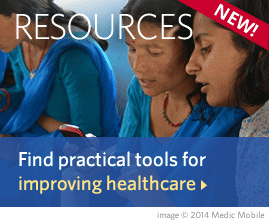The development and humanitarian sector comprises many organizations, groups and communities working towards shared sustainable development goals. Connecting with others working on the same issues…
Read More...Showing results for: Culture
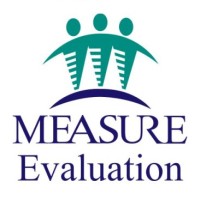
This presentation, created by MEASURE Evaluation, discusses monitoring and evaluation of gender and HIV. It assumes a basic knowledge of monitoring and evaluation. Starting with…
Read More...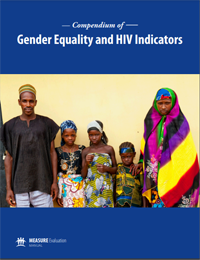
The compendium of indicators is the result of an international collaboration of multi and bilateral donors (including UNWomen, UNAIDS, WHO, USAID, PEPFAR, GFATM), civil society,…
Read More...The Johns Hopkins Center for Communication Programs (CCP) COVID Behaviors dashboard presents data from a global survey of knowledge, attitudes and practices around COVID-19, the…
Read More...The Global Health Compassion Rounds are a quarterly gathering of a global community to share experiences, challenge ideas, and spark thinking on compassion in global…
Read More...Although knowledge management (KM) activities for global health programs have been well documented, with tremendous guidance and training materials developed to support the integration of…
Read More...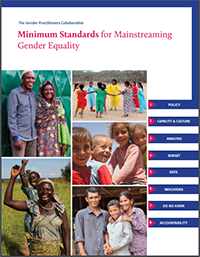
Addressing gender equality is key for successfully achieving sustainable development outcomes and creating a more equal world. Gender equality mainstreaming is the process or means by which unequal conditions are addressed to achieve the goal of gender equality. This means ensuring a gender lens is applied to all organizational and programmatic activities, including a focus on promoting gender equality and empowering women and girls.
Read More...Gender analysis is a systematic approach to identify key issues that contribute to gender inequalities, many of which also contribute to poor development outcomes. The…
Read More...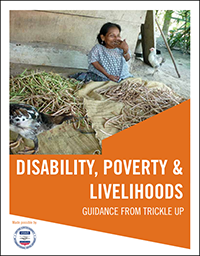
Disabilities can exacerbate poverty by increasing the costs incurred by a household for care and treatment, and negatively impacting earnings if the person with a…
Read More...The Challenge Initiative’s Adolescent & Youth Sexual and Reproductive Health (AYSRH) Toolkit contains evidence-based interventions for increasing young people’s access to sexual and reproductive health…
Read More...



